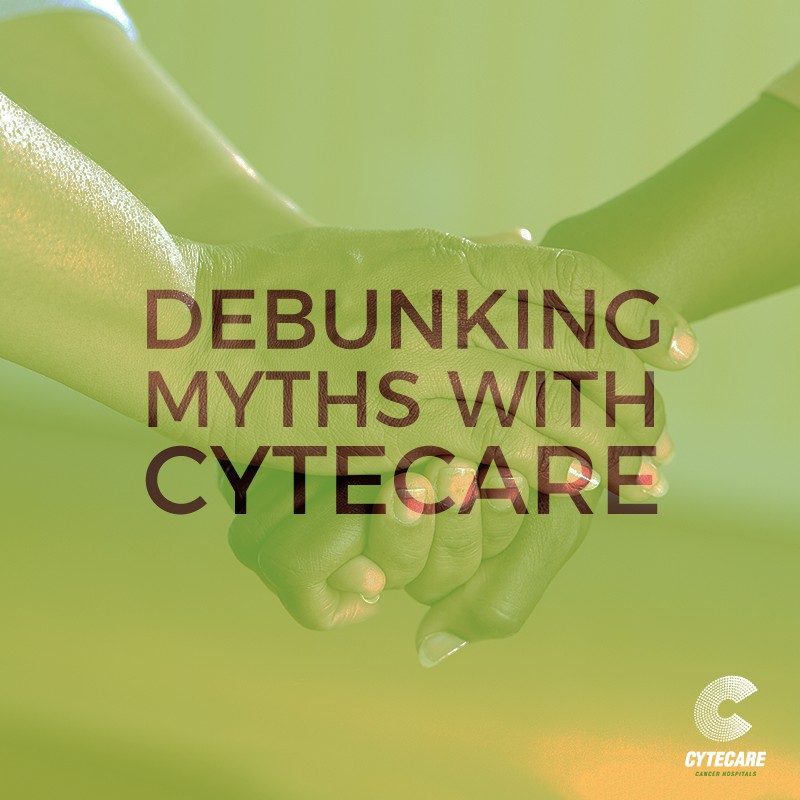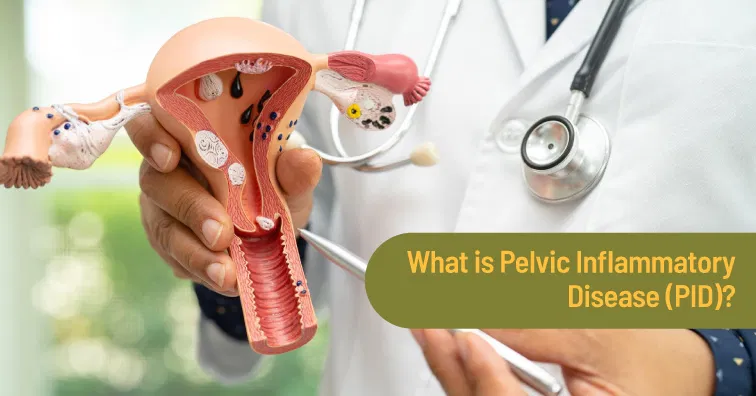
Myth: Cervical cancer is always fatal
Fact: The five-year survival rate of early-stage Cervical Cancer survival rate (Stage 0 to stage 1A) is 93%. The earlier this cancer is detected the higher the curative rate and can provide quality life to cervical cancer patients. It is therefore important that every sexually active woman follows cervical cancer screening recommendations (Pap Smear test, HPV test). This can drastically bring down the cervical cancer burden among women and provide every woman with the chance to have a cancer-free life.
Myth: Cervical cancer can spread through sexual contact and is contagious
Fact: HPV (Human Papilloma Virus) infection is one of the primary reasons for cellular and morphological changes to the cervical cells (pre-cancerous lesions), followed by cancerous transformation. Though this virus spreads through contact with mucous membrane, genital skin or bodily fluids and can be passed through intercourse and oral sex, cervical cancer itself is not contagious.
Myth: Once a woman is infected with HPV, it stays for life.
Fact: If you are a sexually active woman, it is likely that you may have come in contact with HPV at least once in your lifetime. Human bodies are capable of doing incredible things and a strong immune system may most often be able to fight off this virus. In women above 30 years in comparison to younger women, it may take longer to fight off this virus. Hence, an HPV co-testing is recommended to check for HPV risk. For the vast majority of women, the HPV virus may simply go away and may not stay for life.
Myth: A cervical cancer surgery involving hysterectomy for women below 50 years will need hormone replacement therapy
Fact: In cases where a radical hysterectomy is needed, it involves the removal of the entire uterus-the body and cervix), the ligaments surrounding the cervix, and the upper vagina. This does not involve the removal of ovaries the hormone-secreting organs and hence younger women undergoing radical hysterectomy will not need Hormone Replacement Therapy (HRT).
Myth: A normal Pap test means women are free of cancers of the reproductive organs.
Fact: A Pap test only checks for the presence of abnormal or cancerous cervical cells and hence is a test for Cervical Cancer alone. This test will not be able to detect cancers of the ovaries or uterus.
Myth: Being tested positive for HPV means cervical cancer will happen sooner or later.
Fact: It has been observed that more than 80% of sexually active women would acquire genital HPV by age 50. Most often, many women will be able to fight off this virus Also, the cervical changes if any caused by HPV may or may not transform into a cancerous stage. In some instances, the precancerous lesions may stay throughout life without transforming into full-fledged cancer. It is possible for a woman who is HPV positive to never develop cervical cancer.
It is not easy to precisely predict the effects of HPV on the cervical cells of individual patients and depends on the immunity as well as the cellular microenvironment. Therefore, Screening for HPV and a routine Pap test as per the screening guidelines (once in 3 years) is the only way to detect cancerous cells early.
Myth: Once a woman has been vaccinated for HPV, she will not need Pap smears anymore.
Fact: There are over 100 serotypes of HPV viruses, of these many are known to contribute towards cervical cancer. Currently, only two licensed vaccines Cervarix™ and Gardasil™ are available. These Vaccines only offer protection against serotypes 16, 18, 6 and 11. This is so because these serotypes contribute to the highest percentage of Cervical Cancer. This vaccine will not offer protection towards other serotype infections that may occur in a lesser percentage. Therefore when a woman is 21 years old or when she makes her first sexual contact, she must be encouraged to have her routine Pap tests. Being vaccinated for HPV does not eliminate the need for routine Pap test.
Myth: Being diagnosed with HPV positive will label me as being promiscuous or having multiple sexual partners
Fact: Many women fear to discuss Cervical Cancer or discuss HPV testing as they feel it is taboo or will be interpreted as a sign of promiscuity. However, it should be understood that every woman who has a sexually active life, even with a single partner has an equal chance of being infected with HPV. It is also likely that almost all sexually active women may have been exposed to HPV at some point or other in their life. Having multiple sexual partners certainly increases the risk of HPV infection, but an HPV infection need not be an indicator of having multiple sexual partners.
Myth: The HPV vaccination is only for children.
Fact: The HPV vaccine is approved for ages 9-26 years and a second booster dose which is spaced 6-12 months apart will be needed.
HPV only affects Females.
Fact: HPV can infect both boys and girls. HPV infections are also responsible for genital warts. Statistics from countries like the USA show that about 11,000 men get cancers caused by HPV every year. HPV may cause infections of the anus, rectum and penis in men. Men may opt to get the vaccine against HPV between ages 11-12 years.


